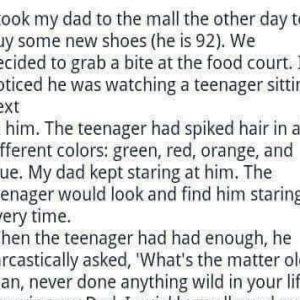When my son, Ethan, set up this account for me and insisted I share my recent dilemma, I was skeptical. According to him, my understanding of what’s normal and acceptable has always been a bit off-kilter. He was convinced that once my story hit the internet, a wave of virtual finger-wagging would set me straight. So here I am, recounting the tale that led to my current status as the family pariah, all because I took my grandkids to Disney World. Ethan and his wife, Sarah, had been planning to attend a friend’s wedding in Mexico, a chance for them to unwind without the kids. They approached me to babysit their children, Lily, 5, and Jack, 4, for what would be a stretch of four nights and five days. Initially, I balked at the idea. Not only did it seem like a marathon of caregiving, but Sarah had previously made it clear that her family took precedence over ours. The notion didn’t sit well with me, and I found it particularly irksome that they would ask me, despite her mother being the apparent go-to for such favors. However, Ethan’s emotional plea swayed me. He argued that it was a rare opportunity for them,
a plea that tugged at my heartstrings, even as a voice in the back of my mind accused them of manipulation.During their absence, an invitation to a birthday party at Disney World came my way. It seemed like a splendid opportunity to do something special with the grandkids, and it honestly didn’t cross my mind to consult Ethan and Sarah. In my defense, Sarah often talked about taking the kids to Disney “someday,” but it always seemed like one of those far-off dreams, not an imminent plan. It was the Magic Kingdom. I had to take the kids. Despite Sarah’s plan to take them, I knew I had to show them around the place. Upon their return, I was blindsided by Sarah’s reaction. The news that I had taken Lily and Jack to Disney was met with tears and accusations. She was devastated, claiming I had robbed her of a milestone — witnessing their first Disney experience. Her words stung, branding me as entitled, which only poured salt on the wound given her past demands for childcare. Ethan, ever the mediator, asked me to apologize, to mend fences over what he deemed a significant oversight on my part. But I couldn’t bring myself to do it. The bitterness of being labeled as entitled, coupled with their disregard for my initial reluctance, hardened my resolve. I saw no reason to apologize for enjoying a day out with my grandchildren, especially when the decision to babysit had been a concession on my part. The fallout was immediate. Ethan insisted that an apology was necessary, not just for the sake of peace, but because Sarah felt robbed of a precious moment. To them, my actions were thoughtless, a blunder that eclipsed the joy of the birthday celebration. But to me, it highlighted a deeper issue, a lack of appreciation and respect for my boundaries. Our standoff has since grown into a chasm, with Ethan hoping that sharing this story would enlighten me to my supposed misstep. Yet, as I lay all this out, I find myself grappling with the complexity of family dynamics, the expectations we place on each other, and the weight of decisions made with the best intentions. I can’t help but wonder if the issue at hand is not just about a trip to Disney, but something more. Perhaps it’s about understanding, communication, and the unforeseen impact of our actions on those we love. Or maybe it’s about the boundaries we draw and the spaces we navigate as family, where the lines between right and wrong blur in the face of love and responsibility. As I share this tale, I realize that my son’s prediction might come true. The court of public opinion may indeed find me at fault. But more than seeking vindication or absolution, I find myself reflecting on the intricacies of human relationships, the mistakes we make, and the lessons we learn along the way. In the end, maybe Ethan is right. Perhaps the internet will deem me the antagonist of this story. But as I ponder the events that unfolded, I can’t help but hope for a resolution that bridges the gap between us, one that acknowledges the complexity of our feelings and fosters a deeper understanding among us. I seriously hope my son, his wife, and I can overcome this. But in the meantime I really want to know: Do you think I was wrong?





